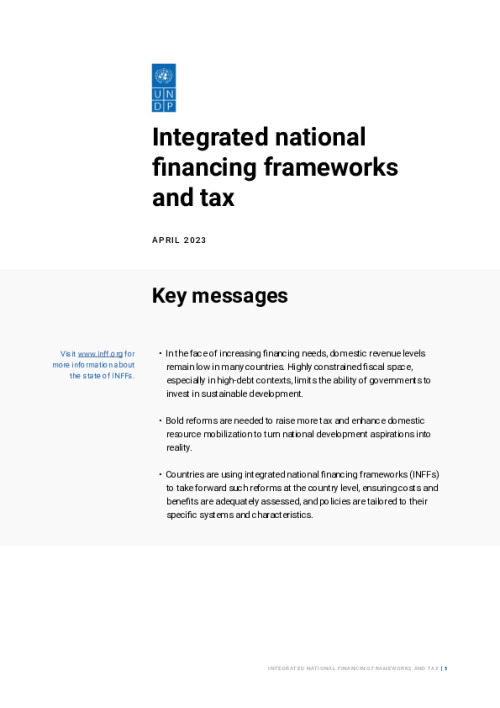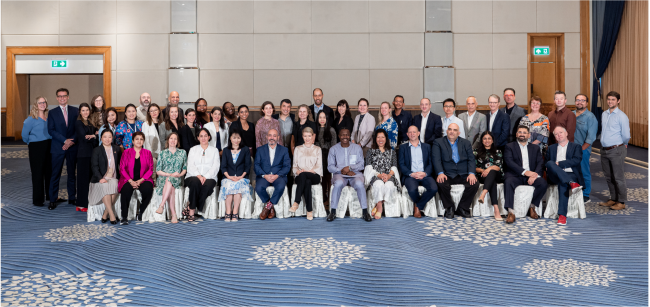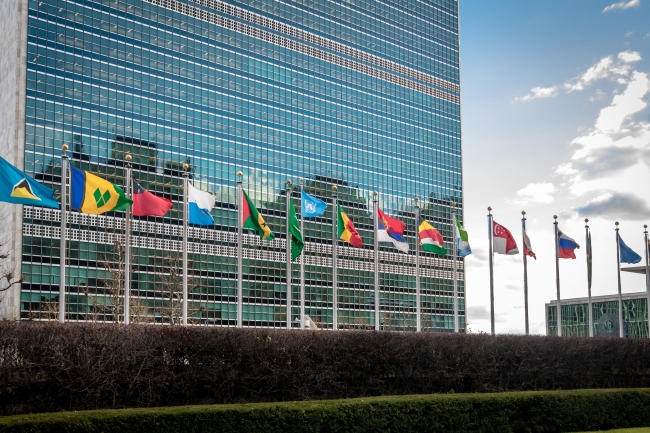Integrated national financing frameworks and tax

Integrated national financing frameworks and tax
10 April, 2023
Developed to inform the discussion during the 2023 Financing for Development Forum, the brief focuses on the challenges faced by developing countries in raising sufficient domestic revenue levels to meet their sustainable development goals (SDGs). Key messages include:
- In the face of increasing financing needs, domestic revenue levels remain low in many countries. Highly constrained fiscal space, especially in high-debt contexts, limits the ability to invest in sustainable development.
- Bold reforms are needed to raise more tax and enhance domestic resource mobilisation to turn national development aspirations into reality.
- Countries are using integrated national financing frameworks (INFFs) to take forward such reforms at the country level, ensuring costs and benefits are adequately assessed and policies are tailored to their specific systems and characteristics.
INFFs are being employed by countries to finance national sustainable development objectives and the SDGs. INFFs help countries develop strategies to mobilize and align financing with sustainability, broaden participation in designing, delivering, and monitoring financing policies, and manage risk. The range of reforms being addressed through INFFs includes increasing tax collection, aligning tax frameworks with sustainable development outcomes, boosting efficiency with technology, and strengthening institutions and systems.
The brief highlights examples of Kyrgyzstan and Tanzania using INFFs to enhance their tax systems.
The brief can help readers to understand the importance of tax reforms in developing countries and the potential role of INFFs in implementing these reforms. It also provides insights into the various DRM reform areas being addressed by countries through INFFs, which can be beneficial for policymakers, tax professionals, and development partners.







